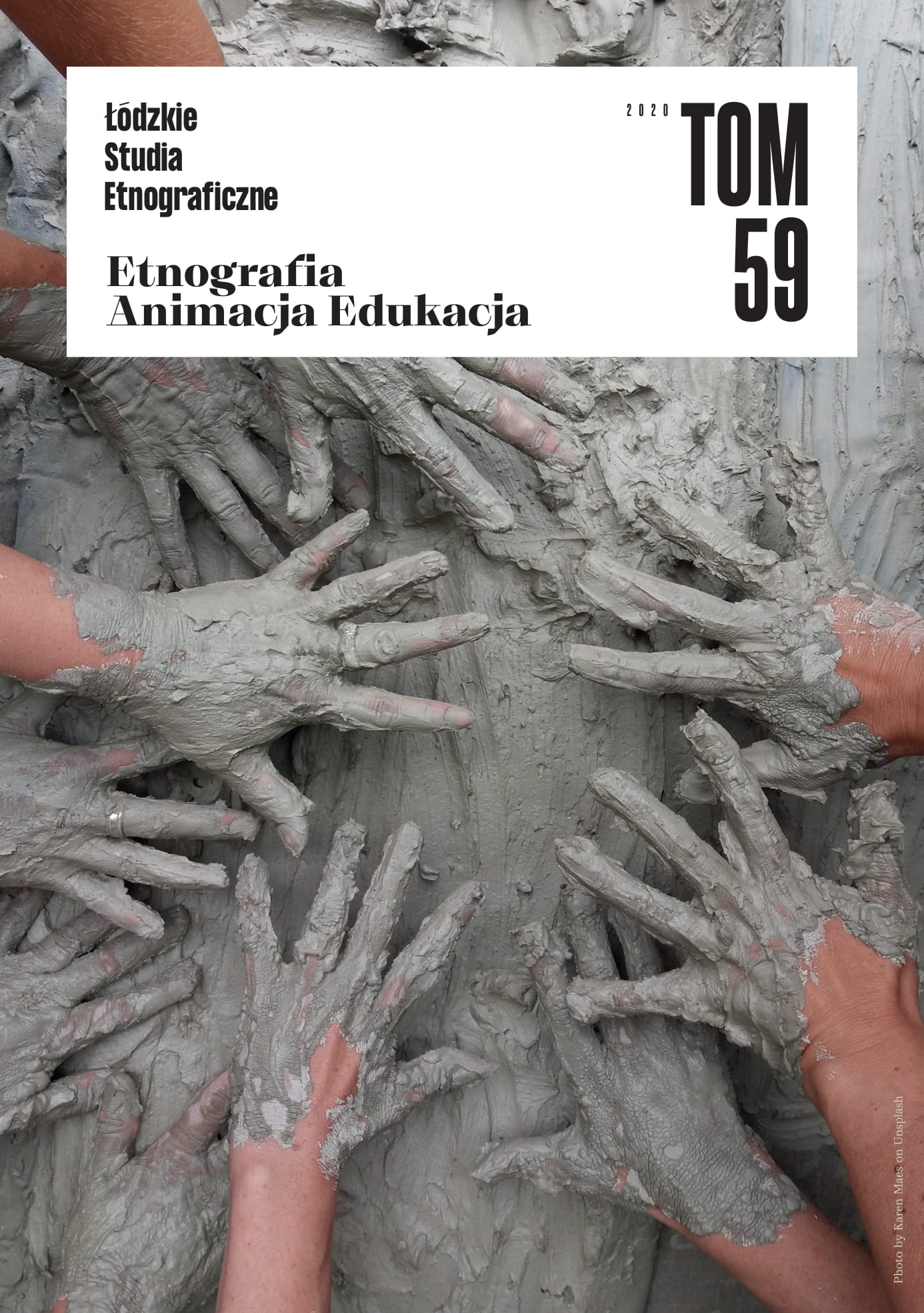The Transferability of Socialand Cultural Anthropology into the Diverse Field of Education in Differing EU Countries
DOI:
https://doi.org/10.12775/LSE.2020.59.11Słowa kluczowe
edukacja, transmisja, EuropaAbstrakt
This paper discusses the EU project TRANSCA – Translating Socio-Cultural Anthropology into Education. The project shares current practices and ideas to help anthropology become more widespread in teacher education and subsequently, in schools. The paper questions selected concepts (e.g. Funds of Knowledge) and the intentions of translating anthropological knowledge for educational purposes because of the problematic notion of „translation” itself in anthropology.
Bibliografia
Chambers, C. (2006). Anthropology as Cultural Translation: Amitav Ghosh’s In an Antique Land.
Postcolonial Text, 2(3), 5.
Clifford, J., Marcus, G.E. (1986). Writing Culture. The Poetics and Politics of Ethnography. Berkeley: University of California Press.
González, N. (1995). The Funds of Knowledge for Teaching Project. Practicing Anthropology, 17, 3–6.
González, N., Moll, L.C., Amanti, K. (2005). Funds of Knowledge: Theorizing Practices in Households, Communities, and Classrooms. Mahwah–New York: Lawrence Erlbaum Associates.
Ingold, T. (2018). Anthropology and/as Education. New York: Routledge.
Moll, L., Amanti, C., Neff, D., González, N. (1992). Funds of Knowledge for Teaching: Using a Qualitative Approach to Connect Homes and Classrooms. Theory into Practice, 31, 132–141.
Project JuMuW [You move]): https://www.sparklingscience.at/en/projects/show.
html?--typo3_neos_nodetypes-page%5Bid%5D=395.
TRANSCA – Translating Socio-Cultural Anthropology into Education: https://www.transca.net.
Trundle, C., Gibson, H., Bell, L. (2019). Vulnerable Articulations: the Opportunities and Challenges of Illness and Recovery. Anthropology & Medicine, 26(2), 197–212.
Pobrania
Opublikowane
Jak cytować
Numer
Dział
Licencja
1. Autorzy udzielają wydawcy (Polskiemu Towarzystwu Ludoznawczemu) licencji niewyłącznej na korzystanie z utworu w następujących polach eksploatacji:
a) utrwalanie Utworu/przedmiotu prawa pokrewnego;
b) reprodukowanie (zwielokrotnienie) Utworu/przedmiotu prawa pokrewnego drukiem i techniką cyfrową (ebook, audiobook);
c) wprowadzania do obrotu egzemplarzy zwielokrotnionego Utworu/przedmiotu prawa pokrewnego;
d) wprowadzenie Utworu/przedmiotu prawa pokrewnego do pamięci komputera;
e) rozpowszechnianie utworu w wersji elektronicznej w formule open access na licencji Creative Commons (CC BY - ND 4.0).
2. Autorzy udzielają wydawcy licencji nieodpłatnie.
3. Korzystanie przez wydawcę z utworu na ww. polach nie jest ograniczone czasowo, ilościowo i terytorialnie.
Statystyki
Liczba wyświetleń i pobrań: 356
Liczba cytowań: 0



